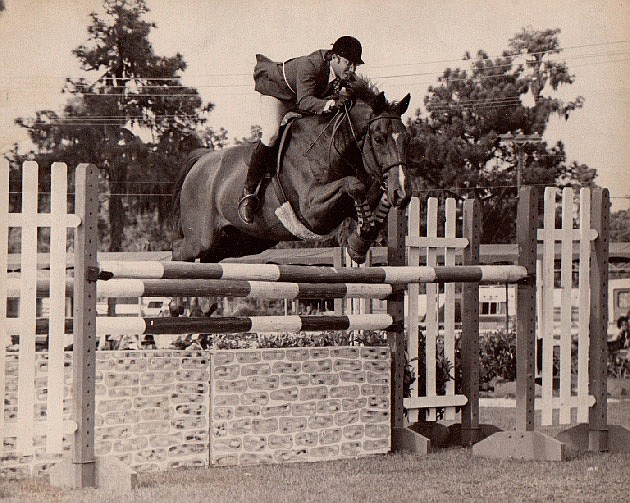- December 20, 2024
-
-
Loading

Loading

Robin Trupp's father was a neurosurgeon in Tampa. One of his patients had fallen on her head in a horse-riding accident.
The patient's parents asked Trupp if he would like to ride that horse. The invitation lead to years of riding saddle horses, hunters, jumpers, quarterhorses and Arabian horses. Trupp competed about 48 weeks out of the year.
Many years later, it eventually led to law offices and the courtroom, where Robin Trupp spends about half of his time representing trainers, stable owners, veterinarians and others connected to horses as an equine attorney.
It is a relatively small, specialized branch of the law. But it is part of a large, international industry. It is estimated that the horse industry brings $500 million to West Palm Beach alone every year. Ocala is home to many stables and horse-training centers.
Trupp kept riding and was in line to go to the Pan Am Games. But after studying finance and law at the University of South Florida in Tampa, Trupp attended a horse show in New York. A group of business school deans were in his hotel. From them, Trupp learned about a joint MBA-law degree program at Tulane University.
After graduating with that dual degree in 1980, Trupp returned to his hometown of Tampa, where he married and had two children. His son, Austin, rode competitively for a while.
Although he does not spend all of his time doing horse industry work, Trupp, 60, feels fortunate to be part of it.
“In good years, at least 10,000 horses come to Florida,” he says. “There are riders, trainers and groomers. It is a big sport. It is high dollar.”
Years of riding and being around horses help Trupp succeed as an equine attorney. He often spends time explaining horse behavior to other litigators. “A horse is not like a car,” Trupp says. “Horses have idiosyncrasies. “If they get the wrong feed, or their routine changes, they may have a bad experience in the ring. They are not always smart. They can learn bad habits.”
This kind of knowledge is especially helpful when Trupp represents trainers whose horses accidentally injure others or who sometimes die prematurely.
In one case, on a family farm, a horse spun and kicked a child in the head. There was surgery, but no long-term harm. The rider's family sued the trainer and property owners. The insurance company was also defending.
Trupp, who represented the trainer and property owners, was able to disqualify experts the rider was bringing to the case.
In another case, a veterinarian was sued because a horse died. Usually owners have insurance. Another case involved a horse at a horse show that tested positive for a controlled substance.
In one of Trupp's more unusual cases, one client was legally blind and showed horses and had one in West Palm Beach.
The horse tested positive for a controlled substance and the governing body brought charges against the rider and her trainer. The governing body eventually dismissed its claim.
Because people often move horses around, for training and events, so Trupp remains on call, cell phone turned on, in case calls come in after hours.
One client's horse qualified for the world cup in Lumpur. One horse was in Holland and had to go to Calgary. One horse owner faced a legal issue about the proper paperwork so the plane with a horse on it could land in the United States. Trupp says he wins most of the time.
“I work hard at keeping a great batting average,” he says.
During the winter, Trupp is often in West Palm Beach during horse season. He has also gone to California, New York, Pennsylvania and Kentucky for administrative hearings and meetings on equine cases.